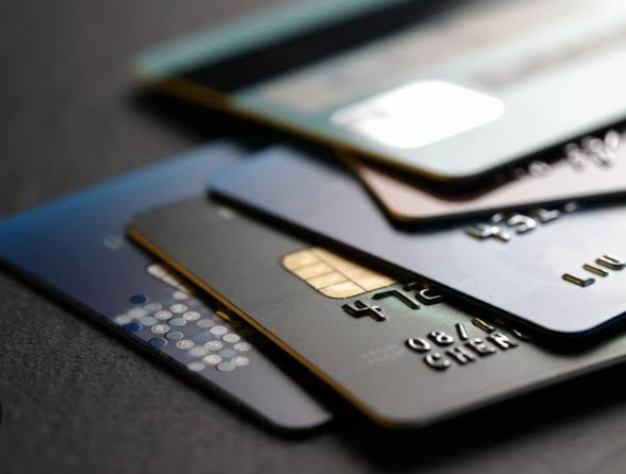Impulse buying: strategies to control it
Impulse buying, the act of purchasing without a plan, is something most of us have experienced at one time or another. Whether it’s grabbing a candy bar or a soda at the checkout line, we are all guilty of succumbing to the allure of instant gratification. However, it’s important to guard against impulse buying, as spending without accountability can lead to financial disaster. In this article, we’ll explore strategies to control impulse buying, the downsides of retail therapy, and how to save money on gas.
Strategies to Control Impulse Buying: Impulse buying and how to control it can be a challenging habit to break, but with the right strategy, it is possible to regain control over your spending. Create a budget to allocate your money intentionally and prioritize needs over wants. Use a spending journal to track expenses and become more aware of spending patterns. By recording each expenditure, you can evaluate the necessity and value of each purchase, making you more accountable and helping you avoid impulsive spending.
Downside of Retail Therapy: While indulging in retail therapy may provide temporary satisfaction, it can lead to overspending, increased debt, and emotional dependency on material possessions. Understanding the negative consequences of retail therapy can motivate you to find healthier alternatives to deal with stress and emotional well-being. Consider exploring other activities like exercise, hobbies, or spending time with loved ones as alternatives to shopping.
How to Save Money on Gas: Impulse buying isn’t limited to retail stores; it can also apply to other areas of our lives, such as fuel expenses. To save money on gas and avoid impulsive decisions at the pump, plan your trips by combining multiple errands into one trip. Additionally, take advantage of fuel rewards programs offered by gas stations to receive discounts or rewards for frequent customers. By being mindful of your driving habits and utilizing these strategies, you can minimize unnecessary expenses and save money on gas.
Impulse buying can have detrimental effects on our financial well-being if left unchecked. By implementing strategies to control impulse buying, being aware of the downsides of retail therapy, and finding ways to save money on gas, we can regain control over our finances and make more intentional and informed purchasing decisions. Remember, being mindful of our spending habits is key to achieving financial stability and reaching our long-term goals, so stop wasting money.
Impulse buying: strategies to control it
Impulse buying and how to control itcan be a challenging habit to control, but there are various strategies you can employ to regain control over your spending. It’s important to remember that not all suggestions may apply to your situation, but exploring different approaches can help you find effective ways to control impulse buying. Here are some strategies to consider:
Create a budget. Establishing a budget is a fundamental step in taking control of your finances. By setting spending limits for different categories, you can prioritize your needs and allocate funds accordingly. This can help prevent impulsive purchases that may not align with your financial goals.
Make a shopping list: Before heading to the store or browsing online, list the necessary items. Stick to the list and avoid deviating from it. This will help you stay focused and reduce the temptation to make impulsive purchases.
Implement a waiting period. When you feel the urge to buy something impulsively, give yourself a cooling-off period. Delay your purchase for a specified time, such as 24 hours or a week. This waiting period allows you to reconsider the necessity and value of the item, helping you make more rational and intentional decisions.
Identify triggers and find alternatives. Reflect on the situations or emotions that often lead to impulse buying. Are you more likely to make impulsive purchases when stressed or bored? Once you identify your triggers, find healthier alternatives to cope with those emotions, such as engaging in a hobby, exercising, or spending time with loved ones.
Practice mindful spending: Before purchasing, ask yourself if the item is essential and aligns with your values and goals. Consider the long-term value and utility of the item rather than being swayed by short-term desires. Being mindful of your spending can help you avoid impulsive purchases that may later be regretted.
Remember, controlling impulse buying is a journey that requires self-awareness and discipline. By implementing these strategies and finding what works best, you can regain control over your spending habits and make more intentional and informed purchasing decisions.
Make a budget and live by it.
Making a budget is an essential step toward financial stability, but it holds no value if you don’t actively use it. Here are some key points to consider:
Create a realistic budget. Start by evaluating your income and expenses. Categorize your expenses into fixed (e.g., rent, utilities) and variable (e.g., groceries, entertainment) costs. Set realistic limits for each category based on your income and financial goals. Remember to allocate funds for savings and emergencies. Track your spending: Once you have a budget, track your spending regularly. Use apps, spreadsheets, or a simple pen and paper to record your expenses. This will help you identify areas where you may need to spend more wisely and make the necessary adjustments to stay within your budget.
Living within your budget requires discipline and commitment. It’s important to review and adjust your budget as needed, significantly when circumstances change. By actively using your budget, you can gain control over your finances, save money, and work towards achieving your financial goals. Remember, a budget is only effective if you put it into action.
Use cash
Cash is a great strategy to control your spending and stick to your budget. When you use cash for your purchases, you have a tangible representation of your money in hand, which can help you become more conscious of your spending habits. It can be easier to overspend and lose track of your expenses when you use a debit or credit card, as the transactions are less visible than physical cash. By using cash, you can physically see how much money you have left and make more informed decisions about where and how to spend it. This can help you stay within your budget and avoid impulsive purchases that can lead to financial stress.
Give up credit cards
Giving up credit cards can be a powerful step towards financial responsibility. Credit cards can often tempt us to overspend and accumulate debt due to their convenience and ability to defer payment. By eliminating credit cards from your financial routine, you can avoid the temptation to make impulsive purchases and live within your means. Instead, focus on using cash or debit cards to make transactions, giving you a clearer picture of your available funds and reducing the risk of falling into unnecessary debt. This decision can help you regain control over your finances and make more intentional and responsible spending choices.
Stop and think.
When faced with the temptation to make an impulsive purchase, taking a moment to stop and think can be incredibly beneficial. Ask yourself two critical questions: “Do I need this? “and “Will it get me any closer to a goal or bring joy to my life?”
Firstly, consider the necessity of the item or experience you’re considering purchasing. Is it something you genuinely need or just a momentary desire? By evaluating the actual necessity of the item, you can avoid unnecessary spending and prioritize your financial resources toward things that truly matter. Secondly, reflect on whether the purchase aligns with your goals and values. Will it contribute positively to your life or bring you joy in the long run? It’s important to differentiate between fleeting gratification and lasting fulfillment. By considering the long-term impact of the purchase, you can make more intentional decisions that support your goals and bring genuine happiness.
Taking a moment to stop and think empowers you to make mindful choices about your spending. By focusing on what truly matters and aligning your purchases with your goals and values, you can cultivate a more intentional and fulfilling approach to your financial decisions.
Shop with the right mindset
Shopping with the right mindset is essential for making wise financial decisions. It involves being intentional, mindful, and purposeful with your purchases. Before making a purchase, take a moment to evaluate the reasons behind it. Are you buying out of necessity or simply because of impulse or societal pressure? Consider the value and utility the item will bring to your life. Additionally, it’s important to research and compare prices, look for discounts or deals, and avoid unnecessary extras. By cultivating a mindful shopping mindset, you can prioritize your needs, make informed choices, and ensure that your purchases align with your financial goals and values.
Avoid temptation
Avoiding temptation is crucial when it comes to maintaining financial discipline. Temptations can come in various forms, such as flashy advertisements, online shopping, or peer pressure to spend. By identifying your triggers and actively avoiding situations where you’re likely tempted, you can protect yourself from making impulsive purchases that can derail your budget. This may involve unsubscribing from marketing emails, limiting your time on social media platforms that promote excessive spending, or surrounding yourself with a supportive network that understands and respects your financial goals. By proactively avoiding temptation, you can focus on your financial priorities and make choices that align with your long-term financial well-being.
If you are not sure if a purchase is impulse or not
When deciding whether a purchase is driven by impulse or genuine need, one effective strategy is to delay the purchase. Giving yourself time before committing to buy allows you to step back and gain clarity. Instead of acting on immediate desires, pause and reevaluate your decision with a clearer mindset.
During this delay, ask yourself a few key questions. Consider whether the purchase aligns with your long-term goals and values. Reflect on whether it will truly bring value or joy to your life. Additionally, assess your financial situation and determine if the purchase fits within your budget. By delaying the purchase, you allow yourself to do further research, compare prices, and consider alternative options. This process can help you make more informed choices and avoid impulsive spending that you may later regret.
Remember, taking the time to pause and reflect before purchasing helps you make more intentional decisions. It allows you to separate impulse from genuine need, ensuring that your spending aligns with your priorities and contributes to your overall financial well-being.
A no-spend challenge
Embarking on a no-spend challenge can be a transformative experience for your financial well-being. The concept is simple: commit to a specific period, whether it’s a week, a month, or even longer, where you avoid any non-essential spending. This challenge encourages you to reassess your relationship with money, identify your spending habits, and prioritize your needs over your wants. It pushes you to be more creative, resourceful, and content with what you already have. By refraining from unnecessary purchases, you can save money, reduce clutter, and gain a fresh perspective on what truly brings value and happiness to your life. The no-spend challenge can be a powerful tool for developing discipline, resetting your financial habits, and ultimately achieving your long-term financial goals.
Remove your saved card information from websites.
Curbing impulse spending can be significantly aided by removing saved credit card information from online stores and apps. This simple yet effective step requires you to manually enter your payment details for each purchase, creating a moment of pause that can deter spontaneous buys. It disrupts the ease of one-click purchases that often bypass thoughtful consideration. Additionally, it enhances online security by reducing the chances of unauthorized charges. Start by navigating to the payment options in your account settings on each website or app and choose to delete your stored credit card information. This proactive measure fosters a more mindful approach to spending, helping you control your finances and align your purchasing habits with your savings goals.
Unsubscribe from retailers
Unsubscribing from retailers can help you reduce temptation and avoid unnecessary spending. Retailers often send promotional emails enticing you to make purchases with special offers and discounts. By unsubscribing, you eliminate the constant reminders and temptations that can lead to impulse buying. Taking control of your email inbox allows you to focus on your needs and priorities rather than being influenced by marketing tactics. It helps create a healthier relationship with shopping and promotes more mindful and intentional spending habits.
Conclusion
In conclusion, impulse buying and how to control itcan have a significant impact on our finances and overall well-being. However, by understanding the allure of impulse purchases and implementing effective strategies to control them, we can regain control over our spending habits. Simple steps such as delaying purchases, removing saved card information from websites, and unsubscribing from retailers’ promotional emails can go a long way in curbing impulse-buying tendencies. By focusing on simplicity and prioritizing our needs over our wants, we can develop a more mindful and intentional approach to shopping. Ultimately, by taking control of impulse buying, we can achieve excellent financial stability and more satisfaction in our purchases.





